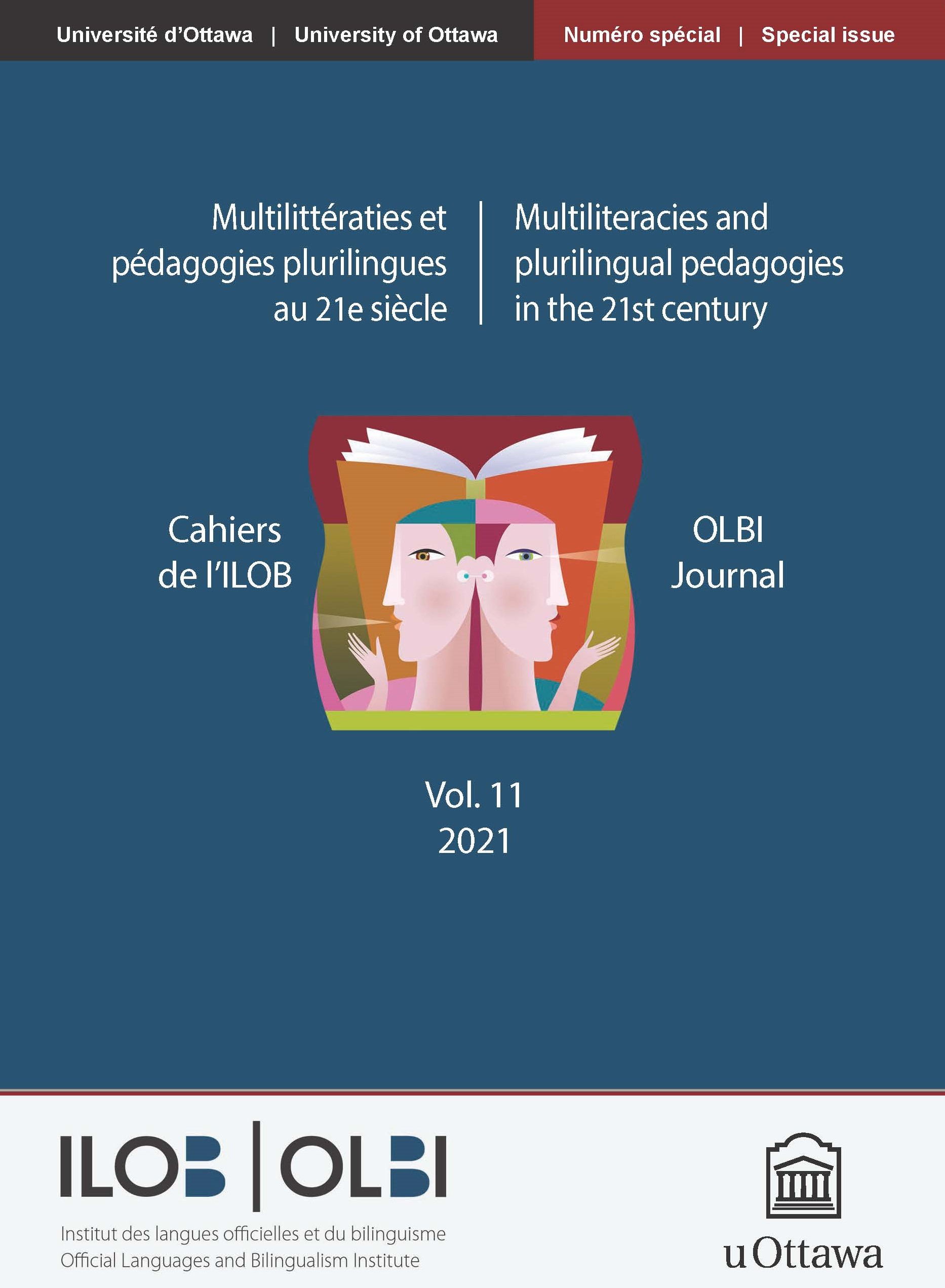Redesigning for mobile plurilingual futures
DOI:
https://doi.org/10.18192/olbij.v11i1.6179Keywords:
multimodality, mobile learning, plurilingualism, postuhumanism, production pedagogiesAbstract
The New London Group’s 1996 manifesto was a clarion call to educational researchers to fundamentally redesign language and literacy education for the needs of global learners communicating in evolving digital media environments. In this conceptual overview, the “how”, “what” and “why” of multiliteracies are critically re examined from the perspective of mobile digital language learning in posthumanist media ecologies, with attention drawn to paradigm shifts in language, technology, multimodality and context. We argue that Web 3.0 environments, AI and rapidly emerging algorithmic cultures have outpaced earlier critical theorizations of multiliteracies and digitally mediated learning practices as well as meaningful implementation of multiliteracies pedagogies in schools. We then reconsider the affordances and constraints of Web 3.0 tools for multilingual/plurilingual language learning, and sketch pathways for critical and productive engagements with mobile devices and multiliteracies pedagogies that reframe and advance the important critical work of the New London Group.
Downloads
Published
Issue
Section
License
Copyright (c) 2021 Heather Lotherington, Kurt Thumlert, Taylor Boreland, Brittany Tomin

This work is licensed under a Creative Commons Attribution 4.0 International License.
Authors who publish with OLBI Journal agree to the following terms:
- Authors retain copyright and grant the OLBI Journal (OLBIJ) right of first publication with the work simultaneously licensed under a Creative Commons Attribution License that allows others to share the work with an acknowledgement of the work's authorship and initial publication in the OLBIJ.
- Authors are able to enter into separate, additional contractual arrangements for the non-exclusive distribution of the OLBIJ's published version of the work (e.g., post it to an institutional repository or publish it in a book), with an acknowledgement of its initial publication in the OLBIJ.
- Authors will not simultaneously submit the same piece of work for possible publication to more than one academic journal at a time.


